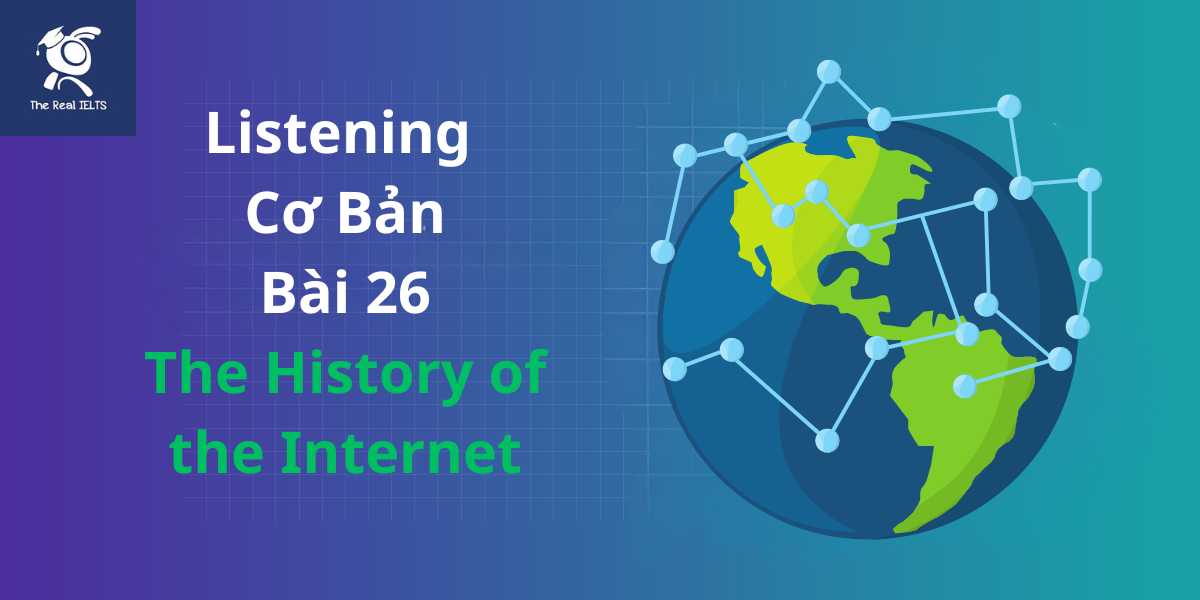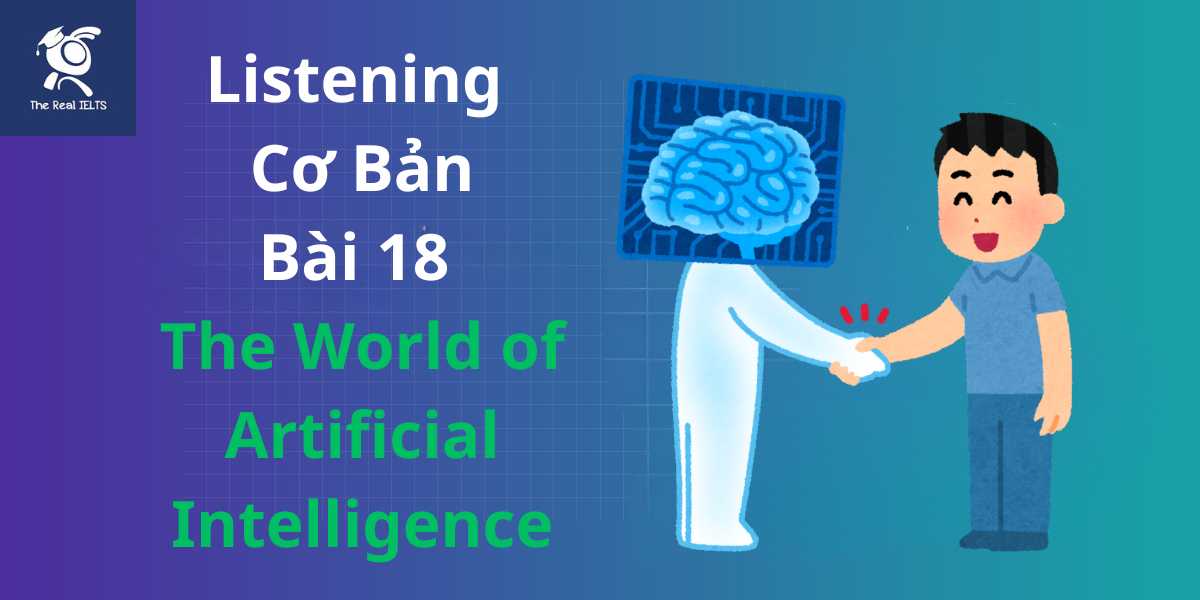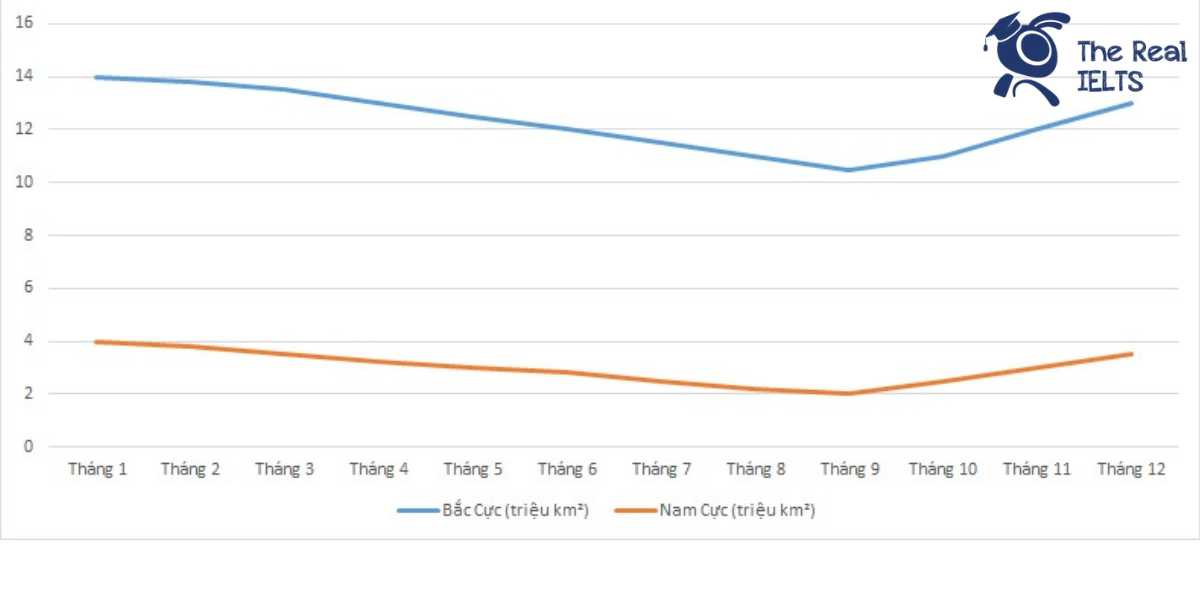Lịch sử Internet là chủ đề bài Listening lần này. Bài này được thiết kế khiến bạn phải nghe đi nghe lại nhiều lần. Chúc bạn làm bài Listening tốt.
Bài Listening
Question
Part 1: Short Answer Questions
- When was ARPANET developed? a) Early 1950s
b) Early 1960s
c) Early 1970s
d) Early 1980s - Who were responsible for developing the TCP/IP protocol suite? a) Tim Berners-Lee and Bob Kahn
b) Vint Cerf and Bob Kahn
c) Tim Berners-Lee and Vint Cerf
d) Bob Kahn and Tim Berners-Lee - What significant invention did Tim Berners-Lee create in 1991? a) The first email
b) The World Wide Web
c) The TCP/IP protocol
d) The first web browser - What was the name of the first web browser? a) Internet Explorer
b) Netscape
c) Mosaic
d) Firefox - What roles does the Internet play in today’s society? a) Only for academic research
b) Mainly for government communication
c) Facilitating communication, commerce, and entertainment
d) Primarily for military purposes
Part 2: Short Answer Questions
Listen to the passage again and answer the following questions in no more than three words.
- What was the original purpose of ARPANET?
- Which decade saw the rapid expansion of the Internet?
- Who invented the World Wide Web?
- In what year was the first web browser released?
- What does the Internet promise in the future?
Part 3: Summary Completion
Fill in the blanks with NO MORE THAN TWO WORDS from the listening passage.
The Internet started with the development of __________ in the early 1960s by the US Department of Defense. A significant development in the 1970s was the creation of the __________ by Vint Cerf and Bob Kahn. The invention of the __________ in 1991 by Tim Berners-Lee made the Internet widely accessible. The first web browser, __________, released in 1993, helped popularize the Internet. Nowadays, the Internet is crucial for __________, commerce, and entertainment.
Answer Key
Part 1: Multiple Choice
- b) Early 1960s
- b) Vint Cerf and Bob Kahn
- b) The World Wide Web
- c) Mosaic
- c) Facilitating communication, commerce, and entertainment
Part 2: Short Answer Questions
- Share information
- 1990s
- Tim Berners-Lee
- 1993
- More advancements
Part 3: Summary Completion
- ARPANET
- TCP/IP protocol suite
- World Wide Web
- Mosaic
- communication
Audio Script:
The Internet, a global system of interconnected computer networks, has a fascinating history. Its origins can be traced back to the early 1960s when the United States Department of Defense developed ARPANET, the precursor to the modern Internet. ARPANET was designed to enable researchers to share information more efficiently.
In the 1970s, the development of the TCP/IP protocol suite by Vint Cerf and Bob Kahn was a critical milestone. This set of communication protocols laid the foundation for data exchange over the network. By the 1980s, ARPANET had evolved and began to connect with other networks, creating a network of networks, which we now call the Internet.
The 1990s saw a rapid expansion of the Internet. In 1991, Tim Berners-Lee, a British scientist, invented the World Wide Web, making the Internet accessible to the general public. This invention allowed users to navigate the Internet using browsers and hyperlinks, revolutionizing the way people accessed information. The first web browser, Mosaic, was released in 1993 and played a significant role in popularizing the Internet.
Today, the Internet is an integral part of daily life, facilitating communication, commerce, and entertainment across the globe. Its continued evolution promises even more advancements in the future.
Học lại bài cũ: Bài tập Listening 25: Sports and their Influence on Culture.















